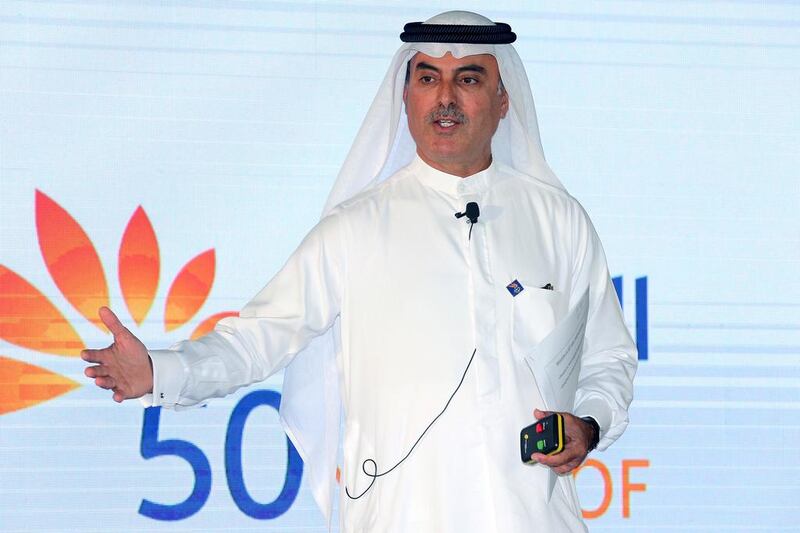Higher interest rates and less money set aside to cover bad debt will help UAE banks overcome static loan growth this year over last year and boost their bottom lines, according to Abdulaziz Al Ghurair, the chief executive of Mashreq bank and the head of the UAE Banks Federation.
Speaking at an event to mark Mashreq’s 50th anniversary, Mr Al Ghurair said he expected loan growth to remain steady at about 5 per cent as it was last year because demand for credit remains lacklustre amid low oil prices. He also expects profit growth of about 5 per cent.
“This year the banking system is stable,” said Mr Al Ghurair. “We’re not going to see fantastic growth but being stable in the current environment in what we see around the world is a great thing to have and there is an advantage when there is stability because it allows us to think outside the box.
“In times of growth we can camouflage a problem. Now we start looking for innovative solutions on how I can maximise my bottom line.”
The Dubai-based lender’s first quarter net profit rose by 2.7 per cent to Dh546.2 million, thanks to a 15 per cent drop in impairment charges to Dh310.7m.
The banker said he expected Mashreq’s loan book to grow by 5 per cent too this year and that much of the growth would come from large companies and its international businesses.
The bank has been aiming to boost its international business in countries including China, India and Egypt to diversify the lender’s source of income away from the oil-dependent nations of the Arabian Gulf that have been hit hard in recent years by low hydrocarbon prices. The bank has branches in Qatar, Kuwait, Bahrain, Egypt, India and Hong Kong and has representative offices in Bangladesh, Nepal and Pakistan. Mr Al Ghurair said the bank is keen to follow its clients wherever they go to facilitate business needs but was not interested in getting bank licences in new countries without there being demand from clients to do business there.
On the consuming banking front, lending is not expected to grow hugely because as lenders use Al Etihad Credit Bureau when making a decision on whether to give out loans or not, rejection rates are rising as the fuller picture of individual debt exposure increases.
“When we put in the requests for loans through the Credit Bureau, our rejection rate goes up 35 per cent,” Mr Al Ghurair said. “On what we used to approve, we put it through the machine, it says ‘no, no, no’. Now I have complete information on the customer. Before it was self declared and we didn’t get everything, but now the bureau pulls in all the exposure of the customer.”
Mr Al Ghurair said the worst of the debt crisis that plagued small and medium-sized enterprises was largely behind us, joining a number of other chief executives, including Bernd Van Linder at the Commercial Bank of Dubai, who have recently said the same thing.
Mr Al Ghurair said the recently passed bankruptcy law was likely to take full effect later this year, providing more of an incentive for distressed business owners not to skip town.
“I think during this year, it will happen,” he said.
mkassem@thenational.ae
Follow The National's Business section on Twitter





